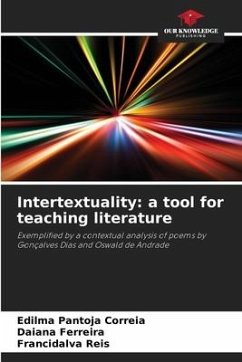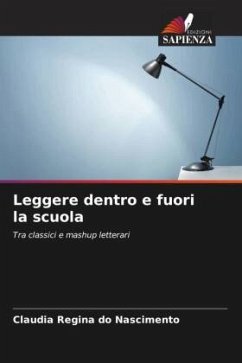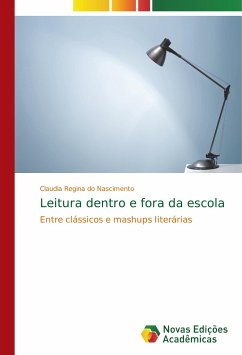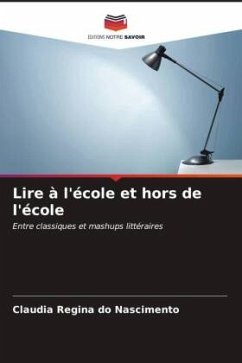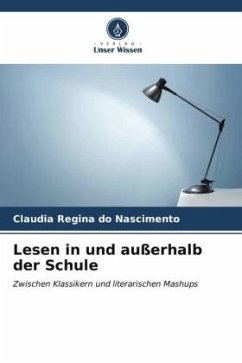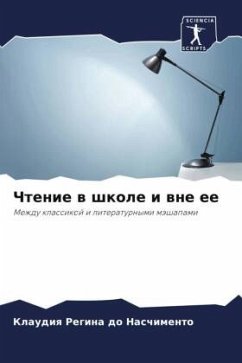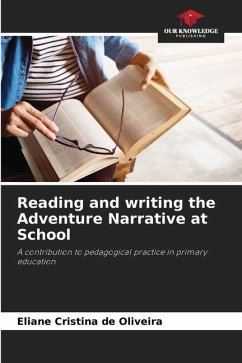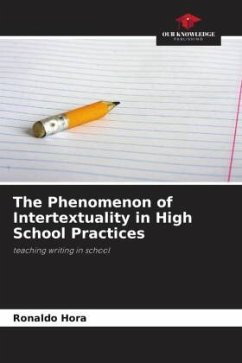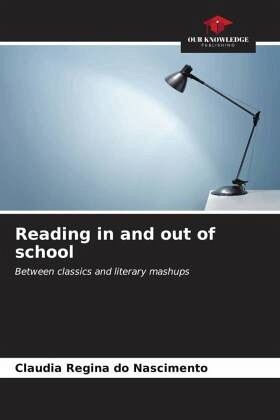
Reading in and out of school
Between classics and literary mashups
Versandkostenfrei!
Versandfertig in 6-10 Tagen
24,99 €
inkl. MwSt.

PAYBACK Punkte
12 °P sammeln!
There is a consensus that reading is an important element in the teaching process. This can be inferred both from the attention that some public education policies pay to the subject and from the ideas of educational thinkers who are considered references in the study of pedagogical practices to encourage reading. Against this backdrop, the motivation to investigate how literary mashups - narratives constructed from literary classics, taken as source texts - were produced emerged, as they were works that were part of the students' free reading, brought by them into the classroom, provoking cur...
There is a consensus that reading is an important element in the teaching process. This can be inferred both from the attention that some public education policies pay to the subject and from the ideas of educational thinkers who are considered references in the study of pedagogical practices to encourage reading. Against this backdrop, the motivation to investigate how literary mashups - narratives constructed from literary classics, taken as source texts - were produced emerged, as they were works that were part of the students' free reading, brought by them into the classroom, provoking curiosity and encouraging others. In this sense, the research is orientated around questions that seek to produce a debate on the importance of pedagogical action that takes into account the voices and knowledge of young people, crossed by the social practices of their time: can it be productive to take advantage, in Literature classes, of the reading that students do outside of school? What isthe dialogue like between the language of the classic and that of the mashup? What is the relevance of literary mashups in school reading activities?




